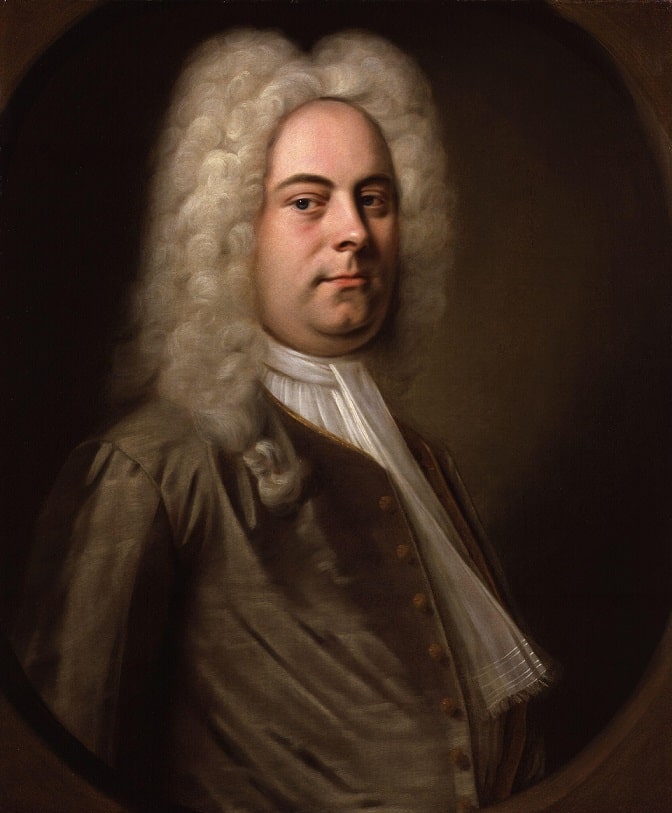
George Frideric Handel, a German Baroque composer who later quite identified as British, was born in Halle, Germany on February 23, 1685. His parents were Georg Handel, a distinguished barber-surgeon, and his mother, Dorothea. Handel was born in the same year as Domenico Scarlatti and Johann Sebastian Bach and is considered to be among the best Baroque era composers with several famous works. Over his musical career, Handel composed over forty operas, in addition to many instrumentals and oratorios.
DISCLOSURE: This post may contain affiliate links, meaning when you click the links and make a purchase, I receive a commission. As an Amazon Associate I earn from qualifying purchases.
Read also: Interesting Handel Facts
Although he was born in Germany, he later became a naturalized citizen of Great Britain. There he also started three commercial opera companies, supplying the nobility in England with Italian operas. Handel was not only considered to be a great composer, but was also thought to be a genius as well. By the time of his death, he had unfortunately become mostly blind, but he was a beloved and respected man who had amassed many riches. Buried in Westminster Abbey, he was given full honors.
Early Life
Handel was born in 1685 and had two younger sisters, Dorthea Sophia, born in 1687, and Johanna Christiana, born in 1690. Handel reportedly attended a gymnasium in his hometown of Halle. There, Johann Praetorius, the headmaster, was believed to have been a very enthusiastic musician. Although it’s unknown how long Handel remained there, it’s believed that Handel was removed from the school by his father, who was adamantly opposed to Handel receiving any type of education in music whatsoever due to his belief that Handel would never be able to turn music into a realistic source of income. In fact, Handel’s father was said to have been astonished at his son’s seemingly early penchant for music and, taking every opportunity to thwart Handel’s musical talent, forbade any musical instrument from being allowed in the house. Furthermore, Georg also prevented his son from visiting anyone who may have been in possession of an instrument as well.
However, this had the opposite effect on Handel. Instead of impeding his desire to be involved with music, it made his desire even stronger. Fortunately, his mother was supportive of her son’s musical endeavor and helped him to practice in secret. Handel secreted a small clavichord to an attic room of their house. Whenever the family was asleep, he would steal up to this attic room, teaching himself to play. There are some historians who believe this to be a purely fantastical tale. However, it would account for how well experienced he was on the keyboard, subsequently impressing the Weissenfels which resulted in his being given formal musical training.
Handel was a very young boy, between the ages of seven and nine, when he accompanied his father to the Weissenfels. It was here that he was noticed by Duke Johann Adolf I, who Handel later regarded as his benefactor. After somehow making his way to the court organ, Handel surprised everyone with his talented playing, so much so that the Duke, overhearing his playing and realizing how young the player was, recommended to Handel’s father that he be given musical instruction. The Duke was such a man whose recommendations rarely went unheeded.
So Handel’s father employed the composer and organist from the local parish church, Friedrich Wilhelm Zachow, engaging him to instruct the young Handel. As it turns out, Zachow was Handel’s first and only teacher. Zachow, due to his employment through the church, was an “old school” organist, taking pleasure in counterpoint, canons, and fugue. Nonetheless, he was also familiar with more recent developments in music as well and seemed to think his own compositions included the newer, more dramatic style.
Upon discovering how talented Handel was, Zachow introduced Handel to a number of both Italian and German music which offered a variety of different styles, schools, and mastery. Today, many “Handelian” traits can be traced back to his teacher’s music. During this time, Handel also continued to practice on the harpsichord, in addition to learning both the organ and violin. However, Handel’s favorite instrument at the time was the oboe (hautbois). It is speculated that it’s because of this youthful favoritism as to why so many of his compositions were written for the instrument.
By the time Handel was ten years old, Zachow’s tutoring had led to his mastering of composing for the violin, oboe, and organ. Handel composed chamber music and church cantatas which didn’t get much attention. However, they were only written for small audiences and have all been lost over time. Because he recognized Handel’s talents, Zachow not only had Handel learn traditional work, but he also introduced him to a variation of masterworks and styles that he had in his own sizable collection. Zachow made Handel practice all these scores of music by having him copy a selection of them. Later in life, Handel recalled that he “used to write like the devil” during those days. Handel kept the notebook in which he copied these selected scores, maintaining it throughout his lifetime.
Sadly, the notebook has since disappeared, but it had been described sufficiently enough to know which particular scores Zachow had him study, or at least some of them. Among the composers Handel studied most were Georg Muffat, whose combination of Italian and French styles along with his blending of musical forms greatly influenced Handle, Johann Jakob Froberger, who was an internationalist also meticulously reviewed by Bach and Buxtehude, Johann Caspar Kerll, who represented southern style after his own teacher and also later imitated by Handel, and Johann Krieger, a distinguished organ composer who was considered to be an old master in fugue.
During this time, Zachow began allowing Handel to take over some of his duties in the church and he performed on the organ regularly. Handle began composing for both voice and instruments around the age of nine. After that, he composed at least one service each week successfully for three years. Many believe that it only took Handle three to four years to surpass Zachow in terms of talent and ability. Nonetheless, Handel grew bored, needing something more challenging. After much consideration, it was decided that Handel would go to Berlin.
Georg’s Death and Handel Attending University
Handel’s father passed away in February 1697, not even two weeks before his own birthday when he would turn twelve years old. As it was German custom for family and friends to write funeral odes for such a consequential member of the community such as Georg, Handel absolved his responsibility with a poem, signing his name along with a dedication to the liberal arts, in acquiescence of his father’s inclinations. Georg had seen to it that Handel’s education would be provided for. At the time of his father’s death Handle was studying at either the Latin School or the Lutheran Gymnasium in Halle, but it is not known for certain.
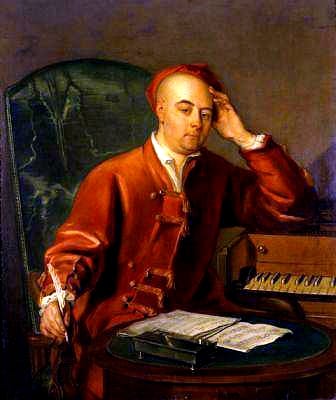
According to what information there is, Handel began traveling to Berlin the following year. However, there is not enough pertinent information to either back this up nor to say with any authority what he did while there. Additionally, there is a gap in Handel’s history from 1698 until 1702 when he fulfilled his promise he made to his father about attended the university. Despite Handel’s love of and obvious dedication to music, he at first agreed he would study law, mostly due to his father’s persistence, enrolling at the University of Halle.
The university was fairly new, having only been founded in 1964. It was largely created by the Elector in order to provide a forum in which the jurist Christian Thomasius might lecture. He had recently been put out of Leipzig due to his liberal views. Although Handel wasn’t enrolled in Thomasius’ lectures, he attended most of them nonetheless. Thomasius was a religious crusader, an academic, and an intellectual who was the first German erudite to give a lesson in the language. He was a staunch advocate of separation of church and state, markedly condemning the witch trials, which were widespread at the time.
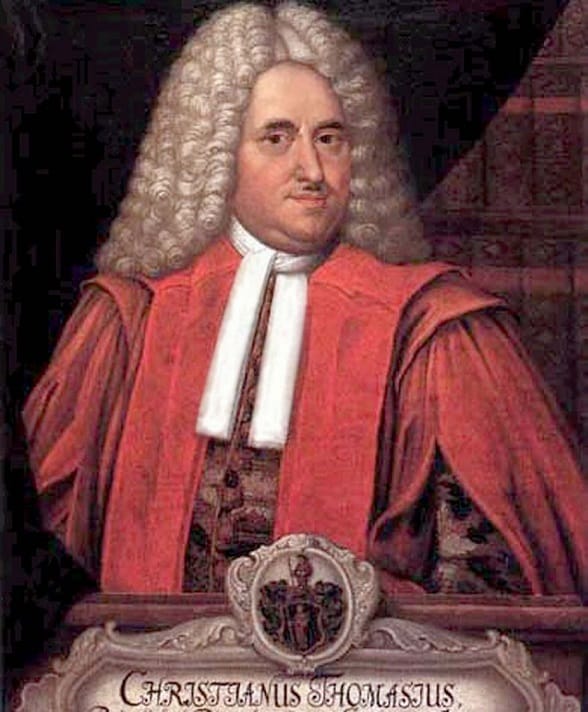
It is believed that Thomasius imbued Handel with a strong respect for the character and freedom of a man’s mind in addition to the deliberate sovereignty of the law, principles that would eventually draw him and keep him in England for half a century. Furthermore, Handel also met a theologian who was an Oriental languages professor, August Hermann Francke, and who was especially concerned about children, orphans in particular. In fact, the orphanage Francke founded became an example all across Germany and without a doubt is what influenced Handel’s own desire to become beneficent when he delegated the assignation of rights of Messiah to the Foundling Hospital in London. Even though he had made a promise to this father, Handel didn’t remain enrolled at the university for long; there was no suppressing his passion for music.
Shortly after beginning his college education, Handel accepted an organist position at the Calvinist Cathedral, even though he himself was Lutheran, in March of 1702. He replaced the previous organist who he had been acting as assistant to, JC Leporin. The position, which came with a probationary period of one year, showcased the fundamentals which he had learned from Zachow. After all, holding the position of cantor and church organist was, at the time, thought to be exceptionally prestigious.
It was also around this same time that Handel met Georg Phillip Telemann. Telemann was four years older than Handel, was studying law, and was Johann Kuhnau’s assisting cantor. Some forty years later, Telemann recalled in an autobiography that Kuhnau’s writing served as a model for him in counterpoint and fugue, but that in both devising musical movements and analyzing them, he and Handel were constantly engrossed, often visiting one another in addition to writing letters.
Hamburg and Italy
In March 1703, Handel’s period of probation to Domkirche ended with Handel apparently moving on; he was in Hamburg by July, just four months later, where he felt better opportunities awaited him. Although the reason for the change is questionable, there is some speculation. It seems he turned down an offer from Frederick to sponsor his musical education in Italy with the implied understanding that on his return he would become a court musician. Because of Handel turning the offer down, he was no longer subjected to preferment, neither as a musician, lawyer, or anything else, for that matter, within the confines of Brandenburg-Prussia.
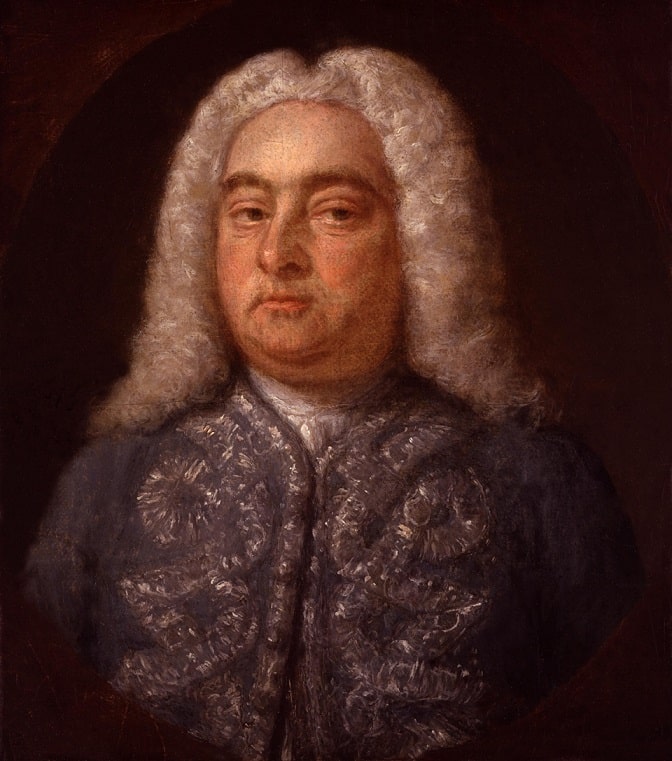
In addition, Handel was drawn to dramatic, secular music due to Telemann’s influence and was enthralled with his introduction to Attilio Ariosti and Bononcini, who were Italians. The city of Hamburg was a logical choice for Handel since it was a free city with an established opera company. However, one still has to wonder as to why he turned down the King’s offer, especially since Italy at the time was the heart of opera. It’s been suggested that because of Thomasius’ teachings, that Handel couldn’t see himself as being subservient to anyone, not even a king. It is believed that Handel saw himself as someone who didn’t like to adhere to class distinctions, especially those which would cast him in an inferior light. He wanted the freedom to just be himself living a cultural life. It is also believed that because of his mother’s embarrassing financial condition, that he set out for Hamburg in order to gain more experience while also finding a way to support himself without being indebted to royalty or the aristocracy.
In 1703, the Hamburg Oper am Gansemarkt made an offer and Handel obtained a seat in the opera orchestra and joined the violin section. In addition, he also took over the harpsichordist duties as well. While he was there, he was introduced to three composers, Reinhard Keiser, Johann Mattheson, and Christoph Graupner.
In 1705, Handel produced two operas, his first two at this point, Nero and Almira, with the latter being his first which he presided over. He also produced two more operas in 1708, Florindo and Daphne, but it’s not clear whether or not these performances were directed by him.
It was the following year, 1706 to be precise, in which Handel headed to Italy, where he would end up composing many works. He had been invited by Ferdinando de Medici who was very much interested in opera and dreamed of making Florence the musical capital of Italy. As such, he wished to attract current leading talents. As a result, Handel met many of the greatest Italian musicians while traveling in Italy over the next four years, such as Alessandro Scarlatti and his son Domenico, Arangelo Corelli, and Antonio Salvi, a librettist with which Handel collaborated at a time thereafter.
Handel traveled to Rome where he composed, for the Roman clergy, what could only be referred to as sacred music. He was unable to compose or play operas, as opera had been banned temporarily by the Pope inside the Papal States. From this era comes Handel’s famous Dixit Cominus, which was produced in 1707. Furthermore, he composed numerous cantatas, which are vocal compositions, in reposeful style for gatherings of a musical nature which took place in the cardinal’s palaces, such as Carol Colonna, Peitro Ottoboni, and Benedetto Pamphili.
In 1707, Handel’s first opera which was all-Italian, Rodrigo, originated in Florence at the Cocomero Theater. He produced two oratorios in private settings, one in 1709 for Ruspoli and one in 1710 for Ottoboni. In 1709, Handel first produced his opera Agrippina, however, it really wasn’t until its Venice premiere in 1710 that it enjoyed a sensational success. Previously, however, the opera did run for twenty-seven consecutive nights at a place owned by the Grimanis, Teatro San Giovanni Grisostomo. One of the owners was Cardinal Vincenzo Grimani, a librettist, was chosen to add his own libretto to the opera. The audience was said to have been so awestruck by the splendor and dignity of Handel’s style, that they applauded “the dear Saxon”, referring to his German ancestry.
London
Handle’s time in Italy had an extensive influence on Handel and the development of his style of music. As a matter of fact, because of his Italian opera-style mastery, Handel’s fame had ignited a fire across the whole of Italy in addition to making him internationally famous as well. Handel became an orchestra conductor, or Kapellmeister, as it’s called, in 1710, to George, the Elector of Hanover. George was a German prince who would subsequently become King George I four years later, in 1714, over Ireland and Great Britain.
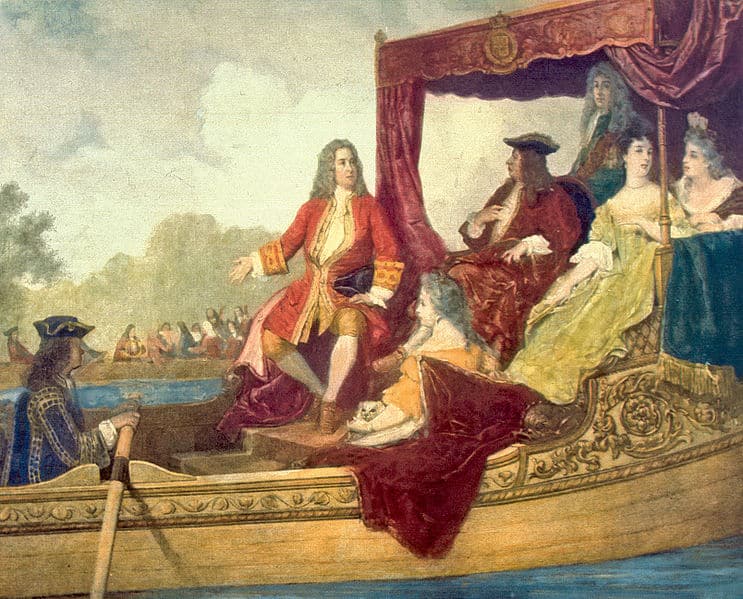
It was also reported that during this time, 1710 specifically, that Handel was received at the home of Anna Marie de Medici and Dusseldorf, her husband, while on his way to London. Additionally, Handel also produced Rinaldo, an opera which was based on a poem by Torquato Tasso, an Italian poet. Although he composed this particular opera fairly quickly, it was rather successful despite the additional fact that he had borrowed several pieces from his earlier Italian works as well. However, this opera is said to contain one of Handel’s favorite arias.
Handel permanently settled in England in 1712. By the summer of the next year, he was living in Barn Elms, Surrey at Mr Mathew Andrews’ estate while receiving from Queen Anne a yearly stipend of two hundred pounds. This was for Utrecht Te Deum and Jubilate, a composition written for her which was first performed that same year (1713.)
During this time, one of his most important benefactors was Lord Burlington who was the Third Earl of Burlington as well as the Fourth Earl of Cork. He was extremely wealthy and young as well as being a member of an important aristocratic family of Anglo-Irish descent. Handel wrote a magical opera called Amadigi di Gaula while living in Lord Burlington’s mansion, which was based on a tragedy about a damsel in distress.
Handel obviously had no reason to return to Hanover by this time. He was decidedly accepted by both the outstanding members of the aristocracy as well as the intellectuals. Queen Anne died in 1714, bringing George Louise, who had been the elector, the crown as King George I. Except for a couple of trips across the continent, Handel stayed in England the rest of his life.
Handel was slow to catch on to the fact that an opera’s conception need to be a coherent structure and, therefore, he didn’t compose any for five years. Water Music, which was an opera he composed in 1717, was performed for the King and his guests many times on the Thames River. In fact, it’s said that Handel’s music was such that it reconciled the King with Handel after having been mad over the composer’s supposed desertion in favor of his Hanover post.
Handel began laying the foundation for the twelve Chandos Anthems, his upcoming choral compositions, in 1717 when he took the position of house composer in Middlesex at Cannons. It was reported that these Psalms, or anthems, as they are referred to, were directly related to Handel’s oratorios, in much the same way as his Italian cantatas related to his operas. These were described as being superb illustrations of his more significant works. Acis and Galatea, another work of Handel’s which he had written for the owner of Cannons, the First Duke of Chandos, was his most performed work, at least during his lifetime. Winton Dean, who was a twentieth century English musicologist most known for his research concerning Handel’s life and works, wrote that the music (of Acis and Galatea) makes one catch their breath, disturbing their memory.
Here’s a link to a reenactment by the Boston Early Music Festival of the original 1718 chamber version of Acis and Galatea:
The Duke of Chandos became one of Handel’s most important patrons in 1719 as one of his main subscribers to the Royal Academy of Music, Handel’s new opera company. However, Chandos lost his money in the bubble of the South Sea Company which burst in 1720 in one of the greatest financial disasters in history and his patronage of Handel’s opera company declined significantly. Handel himself had also invested in stock of the South Sea Company when the price of stock was still low. However, he had fortunately sold his shares before the ruin of 1720.
Royal Academy of Music
The Lord Chamberlain, who was also the First Duke of Newcastle, issued an order to Handel in May of 1719 to search for some different, fresh singers. In accordance with his demands, Handel then attended an opera house in Dresden which had recently been built. There he witnessed an opera, Teofane, written by composer Antonio Lotti, where he motivated cast members to engage in his opera house at the Academy. He convinced them due to the fact the Academy had been founded by wealthy aristocrats, assuring them there would be constant work in both opera seria or barque opera.
It is believed that Handel also invited a former student of his form Halle, John Smith, along with his son, to work as both accountant and secretary. At this time, Handel began renting a house on Brook Street, a Georgian in which he would live out the rest of his days. It is now the Handle House Museum, as it was where he sold tickets, transcribed music, and rehearsed in addition to his composing there as well.
Handel wrote three exceptionally successful operas during a one year period which spanned 1724 and into the following year. They were Rodelinda and Giulio Cesare, Tamerlano. In fact, Handel began solely focusing on composing operas, completely halting his writing of cantatas. One of his opera’s which he wrote at the time, Scipio, is where the British Guard gets the regiment’s slow march from. Handel performed this opera as what was referred to as a stopgap, temporarily appeasing those who were waiting for the occurrence of Fuastina Bordoni’s arrival.
King George II commissioned Handel to write several anthems for him in 1727 for his ceremony of Coronation. Zakok the Priest, one of the commissioned works, has actually been played ever since at every British ceremony of Coronation. However, later the next year, in 1728, Lincoln’s Inn Fields Theater premiered The Beggar’s Opera by John Gay and it ran for sixty-two performances in a row which set the record for longest running opera in theater history at that time. Sadly, after only nine years of success, the Royal Academy subsequently and unobtrusively ceased to exist. Nonetheless, it wasn’t long until Handel began a company anew.
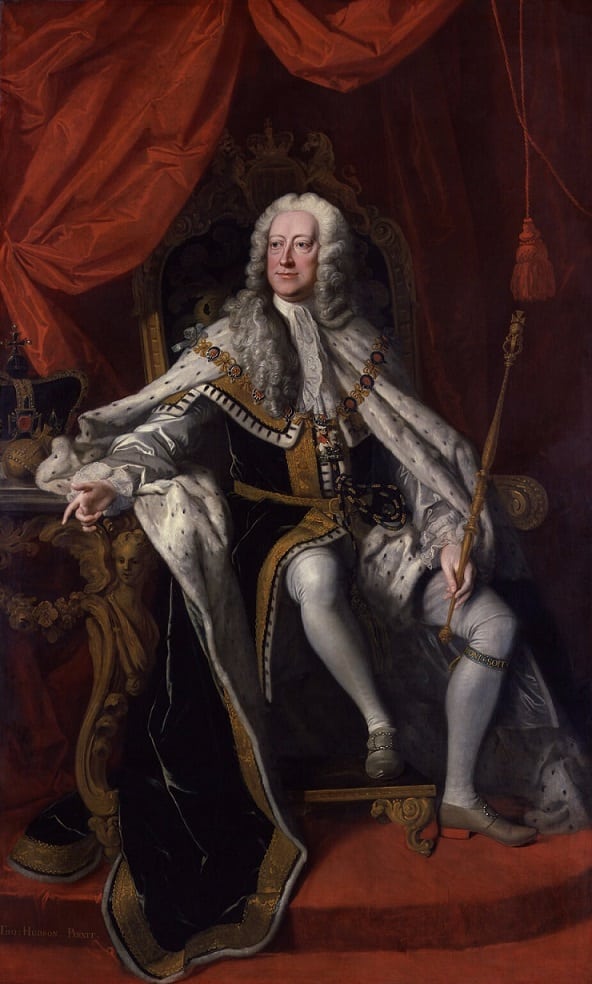
The Queen’s Theater
At Haymarket, what is now called Her Majesty’s Theater was then called The Queen’s Theater. It was established by playwright and architect John Vanbrugh in 1705, almost immediately becoming an opera house. Handel himself premiered more than twenty-five of his operas there between 1711 and 1739 at the theater.
As a matter of fact, he was even chosen as one of the theater’s joint manager. As such, Handel traveled all over Italy in order to employ fresh new singers. In addition, he also managed to compose seven more operas as well. Among those seven operas was the magical opera Orlando and the masterpiece comedy Partenope. It wasn’t long until Handel was able to again invest in the South Sea Company, having composed two financially successful English oratorios.
Handel then revised his Acis and Galatea and it brought him the most success of any work he’d ever created before or since, for that matter. He brought on board musicians, such as the well-known Castrato Farinelli, Nicolo Porpora, and Johann Adolph Hasse to play in the Opera of the Nobility. However, he failed to finish it, apparently due to the strong support afforded to him by the Prince of Wales which had caused much strife inside the royal family. Nonetheless, Handel still managed to compose a wedding anthem and a serenata for Princess Royal Anne.
Covent Garden Theater
Handel was expected to retire in 1733 when his contract ended with The Queen’s Theater. In fact, the board of chief investors anticipated Handel’s retirement as well, but he immediately began looking for another theater. In collaboration with John Rich, who was known for his sensational productions, Handel began his third opera company, the Covent Garden Theater. It was under Rich’s suggestion that he composed Terpsicore, as Rich had advised Handel to introduce Marie Salle and her dancing by using his small chorus.
Handel then initiated short concertos by the organ between acts. Additionally, it was also the first time he allowed the substitution of arias by Gioacchino Conti, who hadn’t had time enough for learning his part. Unfortunately, even though the end of each act contained a ballet suite, Ariodante was a huge disappointment. Handel’s last opera which contained magical content was based on Alexander’s Feast by John Dryden and starred John Beard and Anna Maria Strada del Po.
Sadly, Handel suffered from an apparent stroke at the age of fifty-two years old in April of 1737. This resulted in his losing the use of four digits on his right hand, which subsequently prevented him from continuing to perform. In addition, it also seemed that by summer, the stroke had affected his ability to understand as well. In fact, no one believed that Handel would ever be capable of performing again. However, he quickly recovered, which was considered to be quite remarkable. Nonetheless, it’s not known for sure if Handel had suffered from a stroke, perhaps a nervous breakdown, or simply rheumatism.
Handel left for Aachen, which was a spa located in Germany, in order to promote his recovering. During his stay of six weeks, Handel was fond of taking extremely long, hot baths. In addition, much to the surprise of an impromptu audience, he also ended up giving a short concert on the organ. In fact, just a year after his stroke, Handel’s health was so improved that he was able to write Serse, one of his most famous operas, which also included “Handle’s largo, or Ombra mai fu, the famous aria which he had written for Caffarelli, the famous castrato.
Handel co-produced with Earl of Holderness what would turn out to be his last opera, Deidamia, in 1741. This opera was only performed three times. Handel then decided to give up the business of producing operas and, instead, successfully switched to his English oratorios, which were already seeing achievement.
Handel’s Oratorios
Actually, Handle’s first oratorio had been composed back in 1707 when he was still in Italy. However, he only produced two more over the next eleven or so years, with the last one being Esther, in or around 1718, although it was relatively unknown at the time and the date may even be off a bit. Nonetheless, twelve years later, Handel took up Esther again due to someone trying to copy his work. It’s first three performances incited such enthusiasm that they introduced the idea of performing for a larger crowd, including more of the public. By doing this, Handel became a household name in middle-class homes as well, creating a new class of fans out of those who would have turned away from Italian operas, but that would grasp moral biblical stories set to dignified music.
Afterward, Handel wrote Deborah and then his first English oratorio, Athaliah. These three oratorios served as a foundation for how Handel would use the chorus in his later works. Although Handel learned about writing for instruments from Arcangeol Corelli and about the solo voice from Alessandro Scarlatti, no one taught him how to write for the chorus. That, he taught himself.
More and more Handel tended to substitute English soloists for the traditional Italian ones. The main reason for doing this was because he was in financial straits; his opera returns were dwindling. It is also the reason that the tradition began of singers performing in their own clothes, instead of costumes, commanding how future performances would be performed as well. As mentioned before, Handel produced Alexander’s Feast in 1736, which starred, for the first time, John Beard. However, Beard became one of Handel’s permanent singers, as a tenor soloist, and he would remain in that capacity for as long as Handel lived.
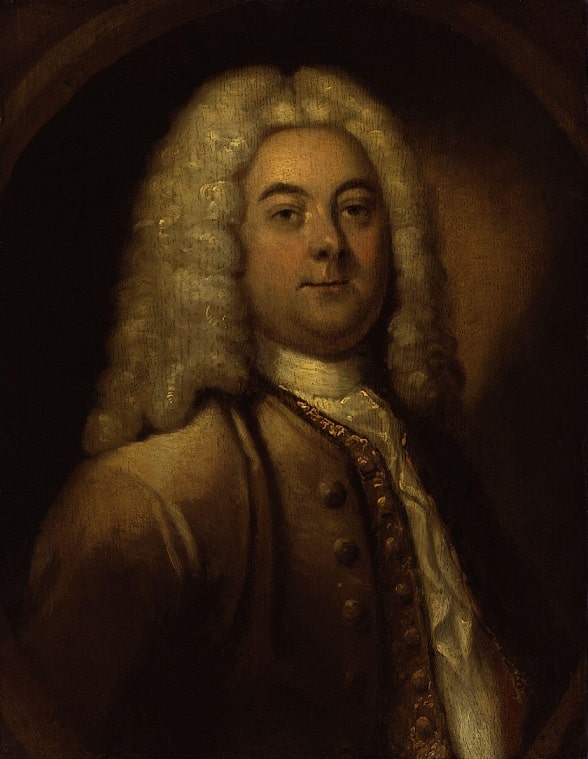
The production of Alexander’s Feast was a tremendous success, encouraging Handel to transition to writing English choral works instead of Italian operas, as it were. Because Handel became more confident and sure of his work, he broadened his presentations, producing more diverse compositions. He seemed to experiment with his works, from his collaboration with Charles Jennens, Saul, which featured extra-large kettledrums along with a carillon and three trombones, to Israel in Egypt, which consisted almost entirely of choruses, to his latter works which set the chorus in the back and put the spotlight upon the orchestra and soloists instead.
The Third Duke of Devonshire persuaded Handel to come to Dublin, Ireland during the summer of 1741. The Duke wanted him to give benefit performances in order to help local hospitals. The first concert was his performance of Messiah, which was given at the New Music Hall. The performance included five men and twenty-six boys from a combination of two cathedrals which were participating. Handel realized this number was optimal, securing this balance of soloists to chorus, and never surpassed it. The chorus’ role became more and more important as well.
Many of his oratorios were performed at the Covent Garden Theater, such as Alexander Balus, in 1747 and Solomon in 1749. His use of English singers instead of Italian ones reached its pinnacle at Samson’s first performance, second only in success to Messiah, but even more theatrical. Performed on February 1752, Jephtha was Handel’s last oratorio. However, it was every bit as masterful as his earlier works.
His Later Years
Twelve thousand people attended the first performance of Music for the Royal Fireworks, which Handel composed in 1749. The following year, he held a performance of Messiah, which he arranged for the proceeds to go to the Foundling Hospital. The concert was a huge success and Handel intended to follow it up with annual concerts, which he did, until his death. Because of his patronage, the hospital made Handel a governor after the initial benefit concert. He even bestowed a copy of the famous musical to the hospital in his will. In fact, Handel was so involved with the Foundling Hospital that he is remembered today with a commemorative exhibit in the Foundling Museum in London. As a philanthropist, he also gave to a charity which helped indigent musicians and their families as well as giving to the hospital.
Handel was on his way back to London from Germany in August of 1750 when he was involved in a carriage accident in which he was seriously injured. The following year one of his eyes began failing, caused by a cataract. He had surgery on his eye, however, it is believed that it only made it worse. By 1752, he had unfortunately become completely blind.
Handel died in his Brook Street home in 1759 at the age of seventy-four. Messiah was the last performance which he attended. Buried in Westminster Abbey, over three thousand people came to mourn his passing by attending his funeral where he was given full state honors.
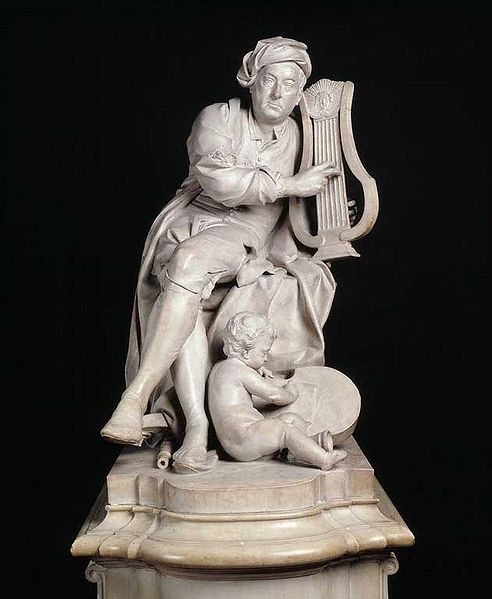
Because he never married, the initial bulk of his estate was bequeathed to his niece. However, several amendments to his will distributed between charities, friends, servants, and relations, much of his estate. An art collection which had been owned by Handel was auctioned off in 1760 and was said to have included ten prints and seventy paintings; other paintings had already been given away in the will.
Handel certainly made a difference in the world of music, but he also saw to it that he made a difference to those who needed it most as well, the sick and the poor. Throughout his life, he gave concerts to benefit hospitals and he regularly gave to charity. He even remembered the Foundling Hospital in his will as well as bequeathing part of his estate to other charities. He gave in death as he had given in life, more than just music, more than just money, he gave of himself and is still remembered and revered today just as he was then.
Related Video:
